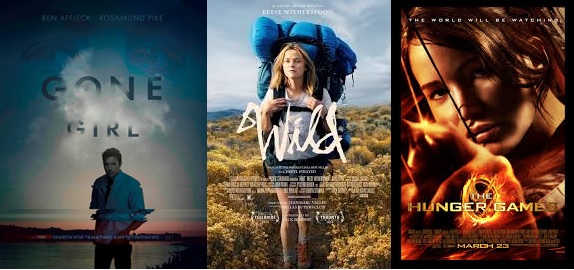These are the 2 most common questions I’ve been asked by people in regards to my upcoming book:
1. Do you get to design the cover?
2. Will it be a movie?
As for #1, I sincerely hope I don’t design the cover because I can barely draw a stick figure. Furthermore, I have no idea how the book cover design process goes, but I’ll do a post about it when I find out.
As for #2, I sincerely hope it becomes a movie, but I’m not holding my breath.
There are lots of examples of books becoming movies. Bestsellers like Gone Girl, Wild, and The Hunger Games became big-screen hits.
Other recent adaptations: This is Where I Leave You (based on Jonathan Tropper’s book), You’re Not You (based on Michelle Wildgen’s book), Another Bullshit Night in Suck City (based on Nicky Flynn’s memoir), Ten Thousand Saints (based on Eleanor Henderson’s book).
Also, more and more, novels are making their way to television. Tom Perrotta’s The Leftovers is now a show on HBO. The Sundance Channel is developing a series based on Chad Harbach’s The Art of Fielding and a series based on Jennifer Egan’s A Visit From the Goon Squad.
So, yes, there’s opportunity for books to make their way to Hollywood. But it’s still a long shot.
Here’s how it works:
According to “Going Hollywood: The Business of Film Adaptations” (Michael Bourne) in Poets & Writers magazine:
“Typically, once a book has sold to a publisher, if the author’s agent thinks it would make a good film or TV series, that agent will hand off the manuscript to someone with contacts at Hollywood studios and indie film companies. If studio executives see potential in a manuscript, or if an author has a wide enough readership, producers may snatch up a book before it is even published, but for most so-called midlist authors–that is, writers who don’t write best-sellers–producers wait until a book is in stores before making a commitment.”
Holly Frederick, an agent at Curtis Brown who specializes in marketing books to film and TV producers says, “There are a lot of bites at the apple. If you’re not able to sell it to Hollywood when it first sells to publishers, then you can wait until the galley stage, or you can wait until publication, because at publication you’ll be armed with reviews, you will be armed with press, and hopefully a best-seller mention or two, and that also perks up the studio’s ears.”
Because studios want blockbuster films that will do well around the world, literary novels usually end up with independent producers (if they end up anywhere at all). And the journey to getting the film made can be an arduous one.
Bourne writes: “With a book, writers need only win over an editor to see their vision of the story through to publication. Filmmakers, even those outside the Hollywood studio system, must accommodate the needs and wishes of a huge number of people, from actors and crew members to financiers and executives at film companies, each of whom helps shape the movie the audience sees.”
“For authors, the trade-off for this loss of creative control is the fat paycheck that can come from selling a book to Hollywood. But Frederick, the Curtis Brown agent, says writers need to keep in mind how rarely that big paycheck actually arrives. In most cases, when producers want to adapt a book for the screen, they first pay the author a small option fee. This payment gives producers twelve to eighteen months to get a screenplay written, find a director and perhaps a bankable star, and otherwise assemble the component parts of a project that will attract the millions of dollars it takes to make even a modest feature film.”
So, how much is a “small option fee”? What kind of money are we talking?
Bourne writes: “The rule of thumb, according to Frederick, is that the dramatic rights for a book by a midlist author are valued at 2.5 percent of the production budget, with 10 percent coming up front and the remaining 90 percent only paid if the project goes forward. This means that if producers expect a movie to cost $10 million, a writer could expect to receive $25,000 for the initial option, with another $225,000 coming due if the movie gets produced.”
“Add to this the writer’s share of any profits the screen adaptation earns–typically, Frederick says, writers receive 5 percent of the producer’s net profit–along with any bump in book sales driven by the heavy promotion of a Hollywood production, and an author of a book that spawns a hit film or TV series is in for a rich payday indeed.”
“But here’s the rub: Only a tiny fraction of books optioned by Hollywood make it to the screen.”
Damn it.
“Frederick says she negotiates thirty to forty page-to-screen options a year, and of those no more than two or three get made into movies or television shows. It is even rarer, she says, for a movie or series to make enough money for the writer of the original book to see a share of the net profits.”
Cue the sad music.
Her advice? “Write the novel you want to write. Don’t write with an eye toward the screen, because it’s probably not going to make it there.”
Well, works for me. I didn’t even think about my book becoming a movie until people started asking me about it.

One thought on “Publishing Journey: Going Hollywood”